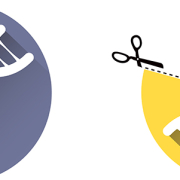Probing pancreatic cancer genomes
New genomic research offers insight into pancreatic cancer and a possible treatment revolution
Pancreatic cancer is the eleventh most common form of cancer in the UK, but the fourth most common cause of cancer death – that is, it is much less responsive to treatment than many other common forms of cancer. Not only does it have a relatively poor prognosis, with a five year survival rate of below 5%, but death rates from this cancer have remained largely unchanged in developed countries for the last forty years.
Call for treatment revolution
Indeed, as treatments improve for many other cancers, pancreatic cancer is expected to become an even more common form of cancer death, lagging behind only lung cancer. Current chemotherapy for pancreatic tumours are typically only modestly effective, though small numbers of patient show good responses; however, the tumours are also quick to become resistant to existing drugs. Clearly, new therapeutic options for pancreatic cancer are desperately needed, and it is therefore particularly heartening to see potentially pivotal new genomic research shedding light on this elusive and intractable foe.
Spotting genetic similarities
Pancreatic tumours are known to contain very variable genetic mutations in many different genes. A major international study, involving samples from the Australian Pancreatic Cancer Genome Initiative and researchers from the UK and US (as well as Australia) performed extensive genomic analysis of over 450 different pancreatic tumours. Reported in the journal Nature, this study included both whole genome sequencing, and ‘deep exome’ sequencing –repeated and highly accurate sequencing of the gene regions. They also looked at which of these genes were active in tumours.
The researchers found a total of 32 genes were commonly mutated in pancreatic tumours, and by examining which genes were active they were able to divide the tumours into four distinct groups that also corresponded to differences in their visible, histopathological features. These were dubbed ‘squamous type’, ‘pancreatic progenitor’, ‘immunogenic’ and the especially catchy ‘aberrantly differentiated endocrine exocrine’, or ‘ADEX’. Essentially, the research shows that these four different sub-types of pancreatic cancer develop via different pathways and have different prognoses, with that for ‘squamous’ tumours being particularly poor.
The clinical value of a genomic cancer ‘blueprint’
The ability to genetically characterise sub-types of pancreatic tumour is more than just a tool for better prognosis. The hope is that it will be feasible to use different treatments for each sub-type that will be more effective than the current ‘one size fits all’ approach. Researcher Dr Peter Bailey commented: “The standard of care for pancreatic cancer really hasn’t changed in the last 20 years. There are a number of different chemotherapeutic options but in general it’s not very selective – it’s like hitting the disease with a mallet with your eyes closed.”
Now, however, it may be possible to move closer towards one of the key visions for genomic medicine – and indeed the cancer arm of the 100,000 Genomes Project – enabling personalised medicine, whereby treatments are tailored to the sub-groups of patients (perhaps one day even to individual patients) on the basis of genomic information. Whilst in some cases completely new treatments may need to be developed, for some pancreatic cancer patients the benefits of this new knowledge could come sooner; it is thought that the immunogenic tumour sub-type may be responsive to existing therapeutics.
–









